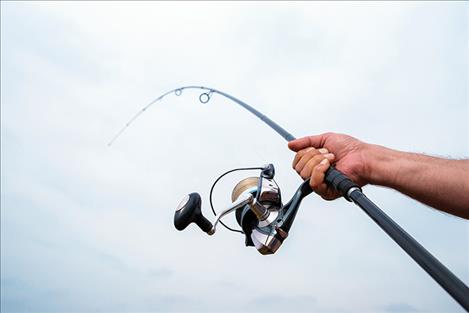Spring Mack Days starts March 20
Hey savvy news reader! Thanks for choosing local.
You are now reading
1 of 3 free articles.
News from the Confederated Salish and Kootenai Tribal Fisheries Program
FLATHEAD LAKE – Spring Mack Days starts on March 20 through May 17 with 51 fishing days and up to $225,000 in cash and prizes.
Because the Confederated Salish and Kootenai Tribes are very concerned about aquatic invasive species, Mack Days contest organizers will require that all boats entered in competition be inspected in 2020 before launching at any site on Flathead Lake and that proof of inspection be turned in with your first entries or before.
AIS inspection stations will open at an early date. Inspections may also be done at Polson Natural Resource Department or Fish, Wildlife and Parks Offices (call ahead) or a Mack Days inspection can be done at Blue Bay, although these inspection sites are not for boats coming from out of state or any boat crossing over the Continental Divide.
Local boats owners and out of state boat owners can get an inspection at the Ravalli check station, which will open on Feb. 21 for seven days a week from 7 a.m. to 5 p.m.
When we have more information on sites for other inspection stations and hours, we will inform the public. Thank you everyone for helping with this important issue.
The check stations are working to prevent zebra and Quagga mussels from infesting Flathead Lake and other local water sources. The zebra mussel is a small freshwater mussel. The species was originally native to the lakes of southern Russia and Ukraine.
The zebra mussel was accidentally introduced into numerous areas in the United States and has become an invasive species in many countries worldwide. They are usually about the size of a fingernail, but can grow to a maximum length of nearly two inches.
Scientists know that zebra mussels can cause increases in toxic blue-green algae, including microcystis, which produces a poison that causes liver damage when ingested by humans and wildlife. Decaying algae can make waters uninhabitable by causing low levels of dissolved oxygen that result in fish kills.
The Quagga mussel is a species of freshwater mussel, an aquatic bivalve mollusk in the Dreissenidae family. It has an average life span of three to five years. It is indigenous to the Dnieper River drainage of Ukraine. The Quagga mussel shell is generally black, yellow and/or zig-zagged.
Ecological problems also result from mussel invasions. Zebra and Quagga mussels can kill native freshwater mussels in two ways: (1) attaching to the shells of native species can kill them, and (2) these invasive species can out compete native mussels and other filter feeding invertebrates for food.
Quagga mussels are filter feeders and use their cilia to pull water, algae and plankton into their shell cavity. Each adult mussel is capable of filtering one or more liters of water each day, where they remove phytoplankton, zooplankton, algae and even their own larvae.
Free-swimming microscopic larvae, called veligers, drift in the water for several weeks and then settle onto any hard surface they can find. Zebra mussels also can tolerate a wide range of environmental conditions and adults can even survive out of water for about seven days.
















